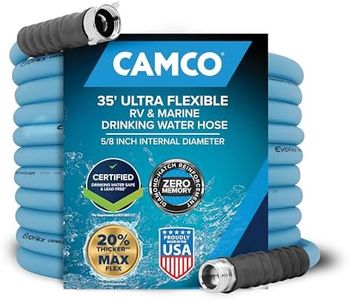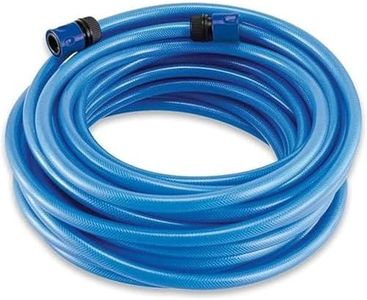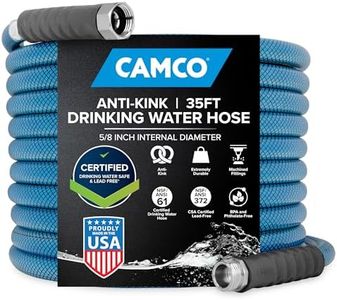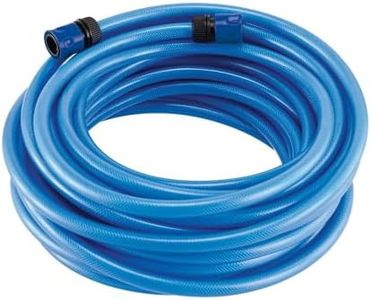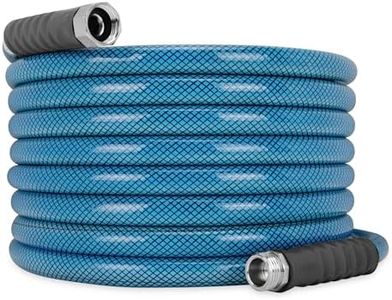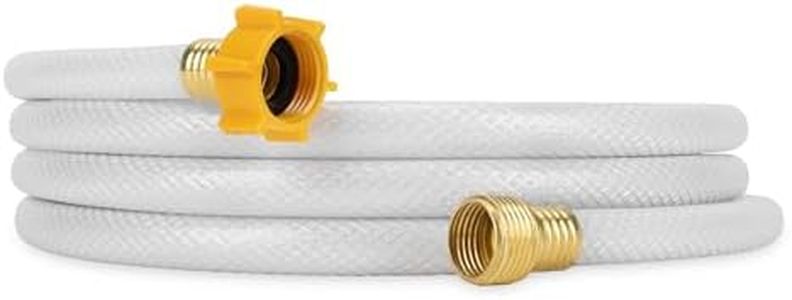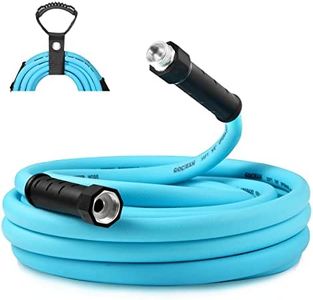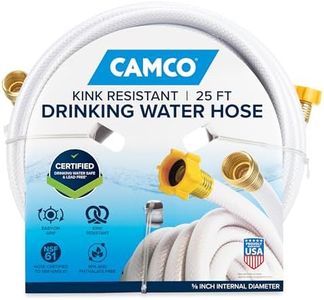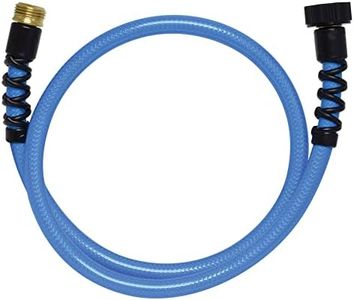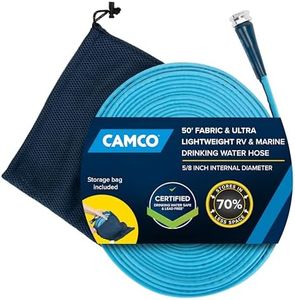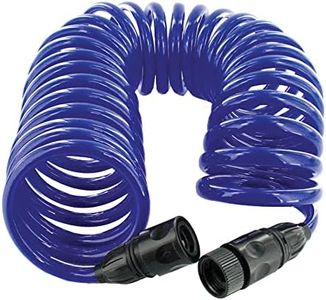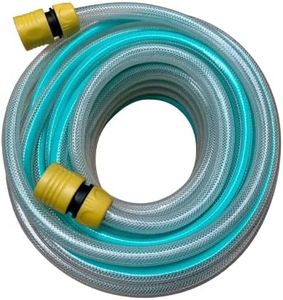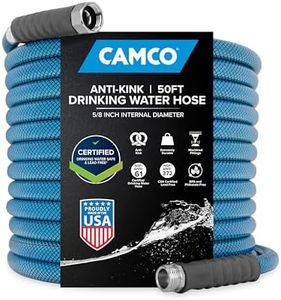We Use CookiesWe use cookies to enhance the security, performance,
functionality and for analytical and promotional activities. By continuing to browse this site you
are agreeing to our privacy policy
10 Best Rv Water Hoses
From leading brands and best sellers available on the web.By clicking on a link to a third party's website, log data is shared with that third party.
Buying Guide for the Best Rv Water Hoses
Choosing the right RV water hose is crucial for ensuring safe, clean water access while you're on the road or at a campsite. The options can seem overwhelming, but focusing on a few key aspects can help you find a hose that fits your lifestyle and keeps your water tasting fresh and safe to drink. It's important to consider factors that influence safety, durability, convenience, and ease of use since these will make your RV experience smoother and more enjoyable.Hose Material (Drinking Water Safe vs. Standard)The material your RV water hose is made from is important because it directly touches the water you’ll consume. Drinking water safe hoses are specifically designed to avoid leaching harmful chemicals into your water, which is especially important for drinking and cooking. Standard hoses, meant for gardening or non-potable uses, can contain materials like lead or phthalates. If you intend to use the hose for human consumption, always choose one labeled as 'drinking water safe.'
Hose LengthHose length determines how far your RV can be from the water supply, which influences flexibility at campsites. Short hoses (around 10–15 feet) are lighter and easier to store, but only practical when water spigots are close. Medium hoses (25–35 feet) suit most situations and are a good default for general use. Long hoses (50 feet or more) offer the maximum reach but take up more storage space and can be heavier to manage. Consider the typical distance from water sources at places you visit when choosing hose length.
Hose DiameterThe diameter of the hose affects how quickly water flows into your RV and how much pressure you get at your taps. Common sizes are 1/2-inch and 5/8-inch. A 1/2-inch hose is lightweight and easy to handle but delivers water at a slower rate, while a 5/8-inch hose allows faster flow and stronger pressure, which is noticeable when filling tanks or using multiple fixtures. Choose based on your water needs—in smaller RVs or light use, 1/2-inch is fine, but for faster flow and larger RVs, go with a 5/8-inch diameter.
Flexibility and Kink ResistanceA hose that is flexible and resists kinking will be easier to use around tight spaces or corners and will not block water flow as easily. Some hoses are designed to stay flexible even in cold temperatures, which is useful for early spring or late fall camping. If you move frequently or set up in tight spots, opt for a hose promoted as 'kink-free' or highly flexible.
UV ResistanceIf your hose will spend a lot of time in direct sunlight, UV resistance is important because it prevents the material from degrading and breaking down, extending your hose's lifespan. If you usually camp in shaded spots or always store your hose out of the sun, this is less critical, but for frequent outdoor use, UV resistance is a valuable feature.
Storage and WeightThe hose’s weight and the way it coils for storage influence how easy it is to pack away and carry. Lightweight hoses are great for limited storage space and easy moving, but may not be as durable. Heavier hoses may last longer but can be cumbersome. Consider how much storage space you have in your RV and how frequently you'll need to coil and uncoil the hose.
